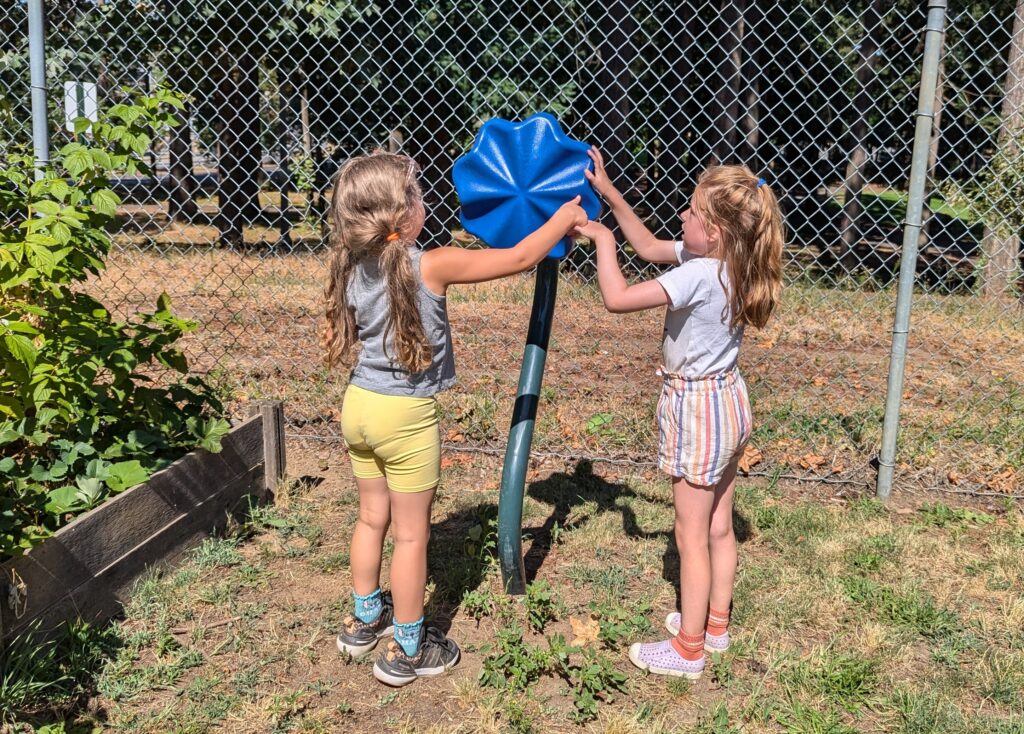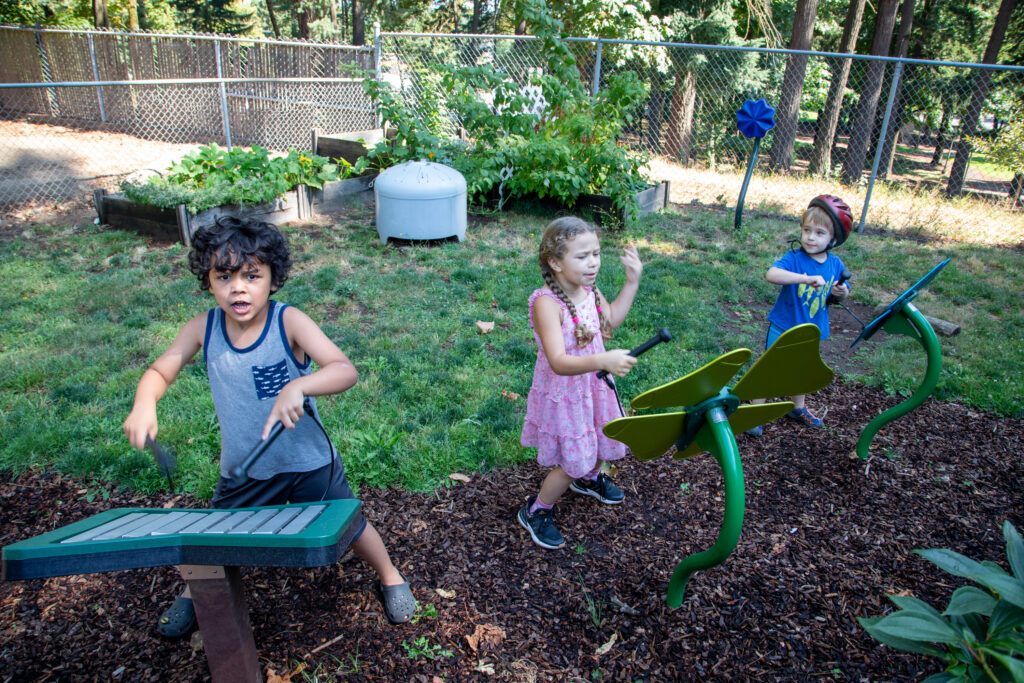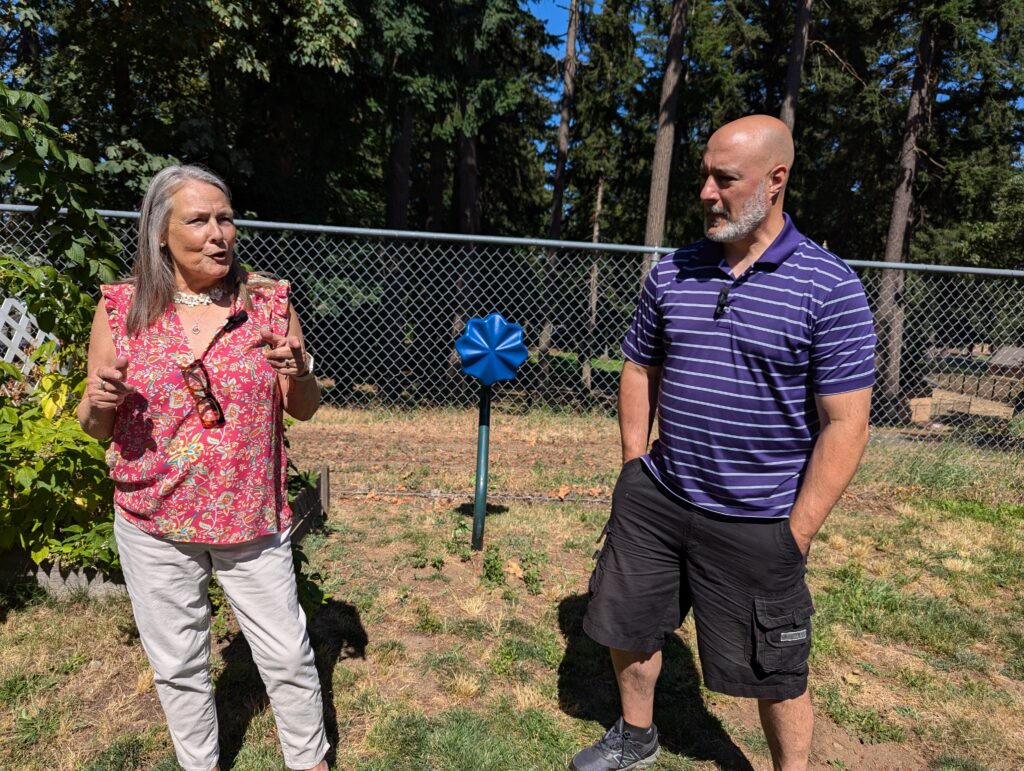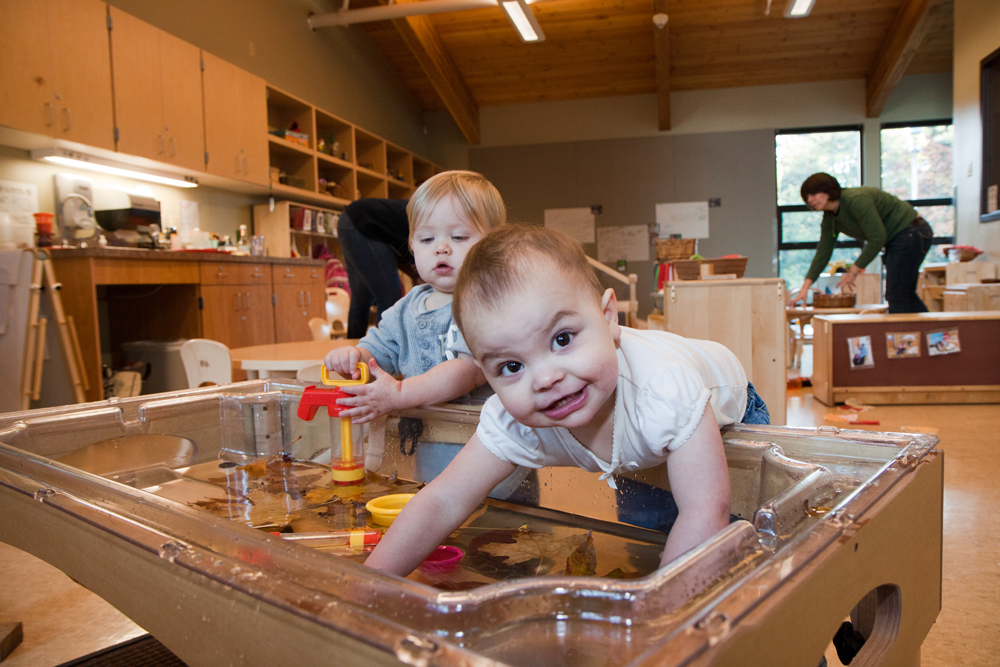Sound Garden

Two preschool girls, pictured above, stood on either side of a blue metal rain wheel and spun the wheel, which created a gentle rattle sound reminiscent of rain. The wheel is one of six pieces of musical playground equipment installed recently in a new sound garden nature space within Clark College’s Child and Family Studies preschool.
Pointing to a whale drum near the back fence, Paul Caggianese, a CFS teacher and program supervisor, explained that the drum had been the only musical equipment since it was installed about two decades ago.
“Adding to the whale drum has always been a dream,” said Caggianese, who stood in the preschool’s backyard watching a group of preschoolers play.

But a lack of funding deterred them.
Michele Volk, director of Child and Family Studies, added, “Every year I meet with the Clark College Foundation to look at our wish list—and they make our wishes and dreams happen.”
Last year, Volk spoke to the foundation about funding for additional outdoor musical equipment, and they worked to make that longtime dream a reality. Now the whale drum is part of a new sound garden, including these additions:
- A blue rain wheel that emits a rattling sound much like rain
- A xylophone with aluminum keys and two mallets so that children can create a variety of notes
- A set of four vibrant chime flowers, each with an attached mallet. Each flower emits four sustained notes to produce enchanting, sustained gong sounds ranging from alto to soprano.

Generous donors
“The sound garden was a project CFS had wanted to develop for years, but lacked the resources to make it happen,” explained Kathy Chennault, Director of Development, Corporate & Foundation Relations at Clark College Foundation. “The foundation’s
connection with the Ella Fitzgerald Charitable Foundation provided the impetus to seriously explore this opportunity.”
The Ella Fitzgerald Foundation provided $5,000 in seed money. Donors via the Clark College Foundation provided the required $5,000 match. With two generous gifts, the initiative moved from concept to reality.
“We felt this was an important project to support as music can have such a profound impact on a young child’s life,” said Randal Rosman, Vice President of Programs at the Ella Fitzgerald Charitable Foundation. “Music can help children develop physically, emotionally, socially, and cognitively as well as with language development. Music is a way to bring people together, share experiences, and learn about diverse cultures. We hope that this sound garden and the associated programming help to create a sense of community with the kids and adults who interact with it.”
Benefits of music education
As Volk and Caggianese watched a group of preschoolers enthusiastically making music with the new equipment, they spoke about the benefits of introducing music in early childhood education, including preschoolers playing in a sound garden.
Caggianese said, “The impacts that music has on your ability to do math, look at language and literacy, just all those influences. And then on top of it, (it’s) another method for children to decompress.”
Volk nodded, “The developmental part of it is a real key to impacting them for lifelong love, joy, and a sense of wonder in music.”
Caggianese added, “Music is a bridge between cultures and languages.”
“Music develops the whole child in ways that people don’t always think about,” Volk said.
All around them, busy preschoolers played in their new sound garden. The team at CFS hopes to add more percussion equipment to the sound garden next.
